Working of Lithium-ion Battery
The article covers the working of a Lithium ion battery, its pros and cons, and its applications.

Now a day, Lithium-ion batteries are incredibly popular. You can find them in laptops, PDAs, cell phones and i Pods. They are so popular because, they are the most energetic rechargeable batteries. Lithium-ion batteries power the lives of millions of people each day. In this blog, we are learning about the working of Lithium-ion battery.
Lithium-ion Battery Working
The rechargeable lithium-ion battery is made of one or more power-generating compartments called cells. Each cell has essentially three components.- positive electrode, negative electrode and electrolyte.
A positive electrode connects to the battery's positive or + terminal. A negative electrode connects to the negative or − terminal. And a chemical called an electrolyte in between them.
The positive electrode is typically made from a chemical compound called lithium-cobalt oxide (LiCoO2) or lithium iron phosphate (LiFePO4). The negative electrode is generally made from carbon (graphite). The electrolyte varies from one type of battery to another.
The electrolyte carries positively charged lithium ions from the anode to the cathode.The movement of the lithium ions creates free electrons in the anode which creates a charge at the positive current collector. The electrical current then flows from the current collector through a device being powered (cell phone, computer, etc.) to the negative current collector. The separator blocks the flow of electrons inside the battery.
While the battery is discharging and providing an electric current, the anode releases lithium ions to the cathode, generating a flow of electrons from one side to the other. When plugging in the device, the opposite reaction happens, the cathode releases lithium ions and anode receives them. This is how the Lithium-ion battery works.
In this battery, the energy density and power density are most common things of the battery. Generally, the energy density measures in watt-hours per kilogram (wh/kg) and is the amount of energy the battery can store with respect to its mass. Power density measures in watts per kilogram (W/kg) and is the amount of power of battery with respect to its mass.
You can also watch this video for the same.
Advantages of Lithium-ion Battery
Now a days Lithium-ion batteries are popular because they have a number of important advantages over competing technologies:
- Generally, they are much lighter than other types of rechargeable batteries of the same size.
- They hold their charge. A lithium-ion battery pack loses only about 5 percent of its charge per month.
- High specific energy and high load capabilities with Power Cells
- Long cycle and extend shelf-life; maintenance-free. They can handle hundreds of charge/discharge cycles.
- High capacity, low internal resistance, good coulombic efficiency
- Simple charge algorithm and reasonably short charge times
- Low self-discharge (less than half that of NiCd and NiMH)
Limitations of Lithium-ion Battery
- Requires protection circuit to prevent thermal runaway if stressed
- Degrades at high temperature and when stored at high voltage
- No rapid charge possible at freezing temperatures (<0°C, <32°F)
- Transportation regulations required when shipping in larger quantities
- They are extremely sensitive to high temperatures. Heat causes lithium-ion battery packs to degrade much faster than they normally would.
Applications of Lithium-ion Battery
Lithium batteries have a long list of real-world applications beyond running the apps on your phone. From life-saving medical equipment to luxury yachts, lithium batteries keep both the essentials and the comforts of modern life running with safety and reliability.
-
UPS or Emergency Power Backup
It is different from a generator or other emergency power backup. It provides nearly instant power in order to run (or safely shut down) the equipment it is connected to.
-
Reliable And Lightweight Marine Performance
Upgrading your boat with a long-lasting rechargeable lithium battery gives you years of reliable motor starts at a fraction of the weight of a traditional lead acid battery. Whether you need to power a small trolling motor, lithium batteries are capable and dependable.
-
Dependable Electric And Power RV
Lithium- ion batteries offer reliable, stable, long-lasting power. The best solution for staying comfortable and safely exploring remote locations. Due to light weight and size, the lithium ion batteries power your Recreational Vehicle or electric vehicle with increased efficiency.
-
Alarm Systems In Remote Locations
These batteries are ideal for remote monitoring systems due to long life, small size. Also, they are not losing power via self-discharge during the time that your system is inactive. Lithium batteries have a self-discharge rate that is 10 times lower than lead acid batteries
-
Storage of Solar Power
Rechargeable lithium ion batteries are the best match for solar panels due to their fast charging. Solar panels produce low resistance charging, which is what lithium batteries require. In addition, lithium batteries charge quickly which allows to maximize the potential solar power storage from each day of sunlight.
-
Personal Freedom With Mobility Equipment
From electric wheelchairs to stair lifts, numerous individuals depend on reliable mobility technology to live an independent life. Lithium-ion batteries are the ideal choice for mobility equipment, as they offer size customization, a longer life span, fast charging, a low self-discharge rate and extended run time.
-
Used in Portable Power Packs
Rechargeable lithium batteries are well-known for powering our phones and the latest lightweight laptop computers. They also tolerate movement and temperature changes, as well as maintain their power delivery during use.
Hope, this blog helps you to understand the working of lithium-ion battery and its applications. We at Robu.in hope that you found it interesting and that you will come back for more of our educational blogs.
MUST READ BLOG POSTS ON BATTERY


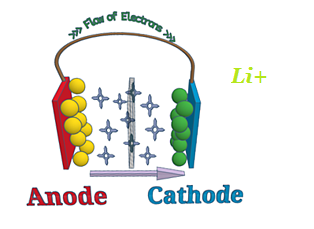
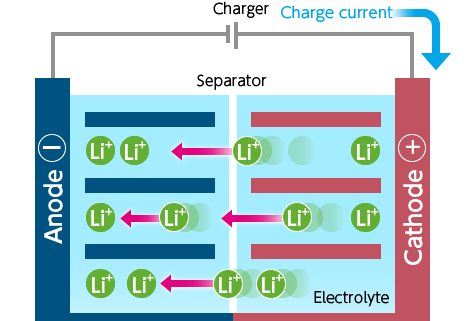
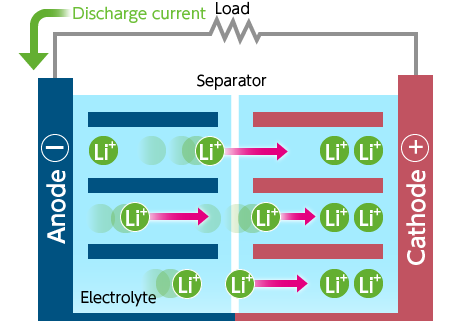
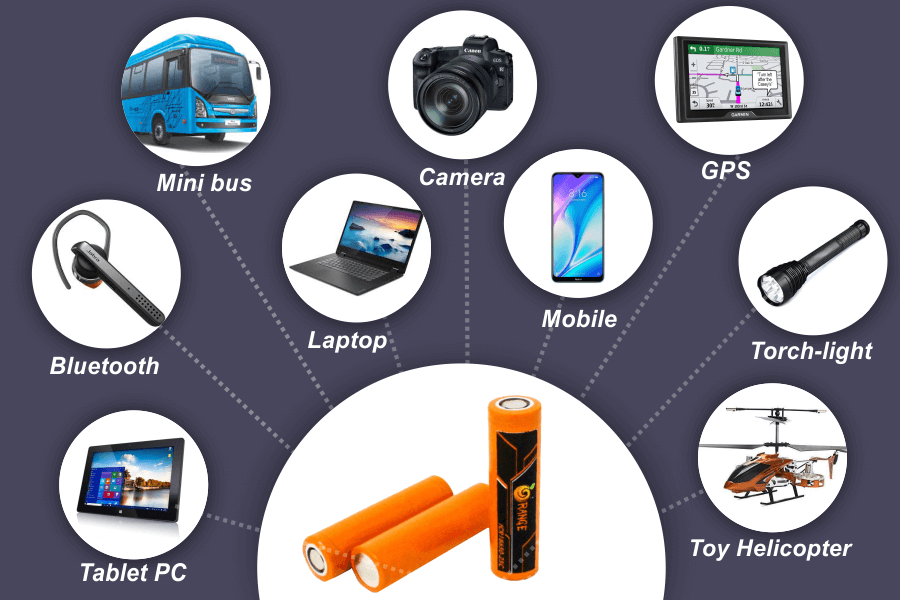


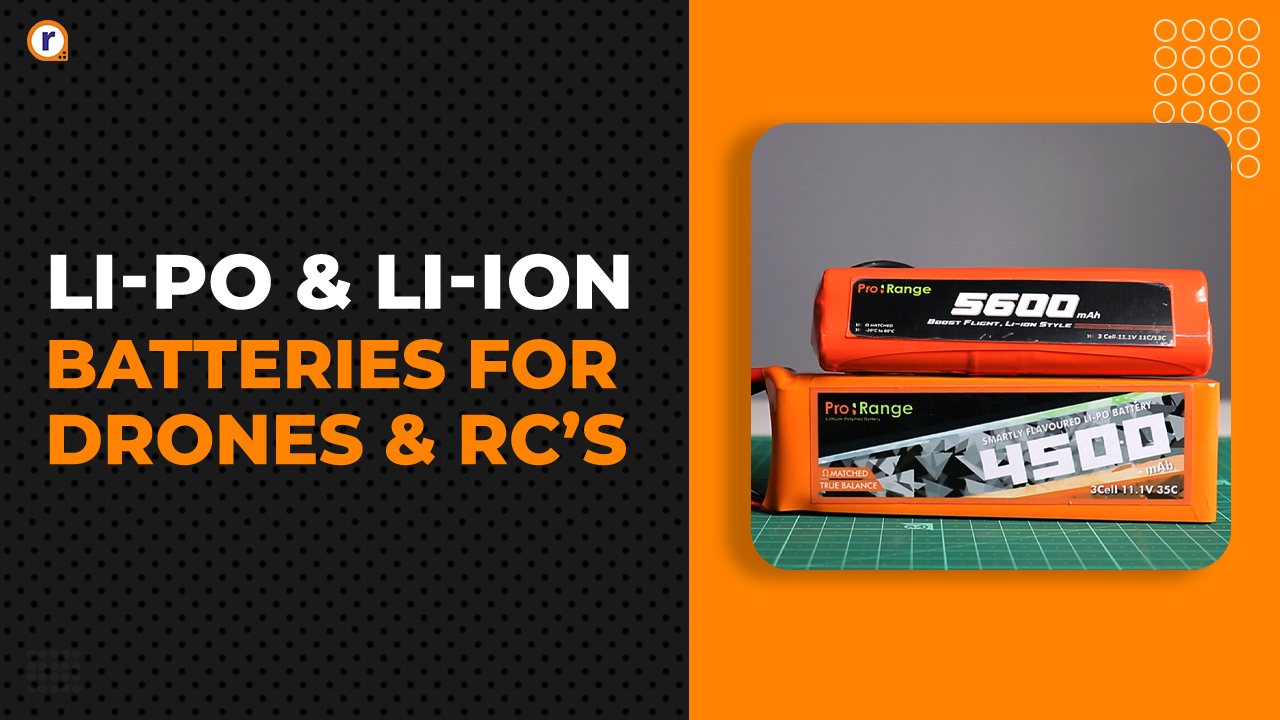


Nice blog, keep posting for more information.